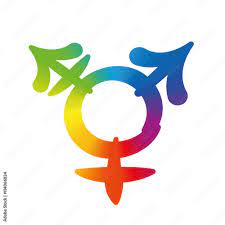Low estrogen levels can have a significant impact on a woman’s physical and emotional well-being. Estrogen, a crucial hormone in the female body, plays a vital role in regulating various functions, from the menstrual cycle to bone health. When estrogen levels drop, whether due to natural aging, hormonal imbalances, or other health conditions, it can lead to a range of symptoms that might catch you off guard. Understanding low estrogen and its effects can empower you to take control of your health and seek the appropriate remedies.
In this article, we’ll explore what low estrogen is, its symptoms, and how it can affect various aspects of your life. We’ll also discuss natural remedies and when it’s time to speak with a healthcare professional. So, let’s dive in and understand this crucial hormone a bit better!How Long After Starting Testosterone Do You See ResultsEstrogen Shot Side EffectsEstrogen And Progesterone Positive Breast Cancer
What is Low Estrogen and Why Should You Care?
Low estrogen refers to a condition where the levels of the hormone estrogen in the body fall below normal ranges. Estrogen is primarily produced in the ovaries, and it plays a vital role in regulating the menstrual cycle, maintaining bone density, and supporting cardiovascular health. Various factors can lead to low estrogen levels, including menopause, certain medical conditions, or lifestyle choices such as extreme dieting or excessive exercise.
Caring about your estrogen levels is essential because they influence many bodily functions. Low estrogen can lead to various health issues, including osteoporosis, heart disease, and an increased risk of mood disorders. Understanding low estrogen can help you identify potential symptoms early and seek appropriate treatment or lifestyle changes.
Common Symptoms of Low Estrogen in Women
The symptoms of low estrogen can vary significantly from one woman to another, making it essential to be aware of what to look for. Common signs include irregular or missed periods, hot flashes, and night sweats. Some women may also experience dryness in the vaginal area, which can affect comfort during intimate moments. These symptoms often arise during perimenopause and menopause but can also occur at other life stages.
Additionally, women experiencing low estrogen may notice changes in their skin and hair. Dry, thinning skin and hair loss can become more pronounced, leading to self-esteem issues. It’s important to recognize these symptoms not just as a natural part of aging but as signals that your body might need attention and care.
Mood Swings: The Emotional Rollercoaster of Low Estrogen
One of the most troublesome effects of low estrogen is its impact on mood. Many women report experiencing mood swings, anxiety, and even depression when their estrogen levels dip. This hormonal imbalance can affect neurotransmitters in the brain, leading to heightened emotional responses and unstable moods.
If you find yourself feeling irritable, anxious, or unusually emotional, it could be due to low estrogen. It’s essential to address these feelings, as emotional well-being is just as critical as physical health. Recognizing that these symptoms are potentially hormone-related can help you avoid self-blame and seek appropriate support or treatment.
Physical Changes: How Low Estrogen Affects Your Body
Low estrogen can lead to noticeable physical changes in a woman’s body. For instance, a decrease in bone density becomes a significant concern, increasing the risk of osteoporosis and fractures. This is particularly important as women age, and estrogen production naturally declines.
Moreover, low estrogen can affect body composition, leading to weight gain, particularly around the abdomen. Women may also experience changes in their muscle mass and strength. These physical changes can impact overall health and self-confidence, making it crucial to understand and address low estrogen levels.
Sleep Troubles: Insomnia and Night Sweats Explained
Many women with low estrogen levels report difficulties with sleep, including insomnia and night sweats. Night sweats can be particularly disruptive, causing you to wake up drenched and uncomfortable. This symptom is often linked to the body’s struggle to regulate temperature due to hormonal fluctuations.
Insomnia, on the other hand, can stem from various factors, including anxiety or physical discomfort. Both insomnia and night sweats can create a cycle of sleep deprivation, which can further exacerbate other low estrogen symptoms like mood swings and fatigue. Addressing these sleep issues is crucial for maintaining overall health and well-being.
Low Estrogen and Its Impact on Your Sex Life
Low estrogen levels can significantly affect a woman’s sex life. One of the most common issues is vaginal dryness, which can lead to discomfort during sexual activities. This discomfort may result in a decreased libido, affecting intimate relationships and overall satisfaction.
Additionally, hormonal changes can alter sexual arousal and response. It’s not just about the physical aspects; emotional intimacy can also wane when hormonal balance is off. Understanding the connection between low estrogen and sexual health can help women and their partners communicate needs more effectively and explore solutions together.
Natural Remedies to Boost Your Estrogen Levels
There are several natural remedies that may help boost estrogen levels or alleviate symptoms of low estrogen. Dietary changes can play a significant role; incorporating foods rich in phytoestrogens—such as flaxseeds, soy products, and whole grains—can help mimic estrogen in the body. Regular exercise can also help regulate hormones and improve overall well-being.
Moreover, managing stress through mindfulness practices, yoga, or meditation can support hormonal balance. Supplements like black cohosh or evening primrose oil may also provide relief for some women. However, it’s essential to consult with a healthcare provider before starting any new supplements or treatments.
When to Seek Help: Talking to Your Doctor About Symptoms
If you’re experiencing symptoms of low estrogen, it’s vital to speak with your healthcare provider. Early intervention can lead to better management of symptoms and overall health. Your doctor can run tests to confirm low estrogen levels and discuss potential treatment options, which may include hormone replacement therapy or lifestyle changes.
Don’t hesitate to bring up any symptoms you’re experiencing, no matter how minor they may seem. Open communication with your doctor will help ensure that you receive the appropriate care tailored to your individual needs. Remember, you don’t have to navigate this alone; your health is worth discussing.
Understanding low estrogen and its symptoms can be a game-changer for many women. By being aware of the signs and symptoms, you can take proactive steps toward managing your health. Whether through natural remedies, lifestyle changes, or professional help, addressing low estrogen can lead to improved well-being, both physically and emotionally. Don’t hesitate to reach out for support—after all, your health is a priority!


